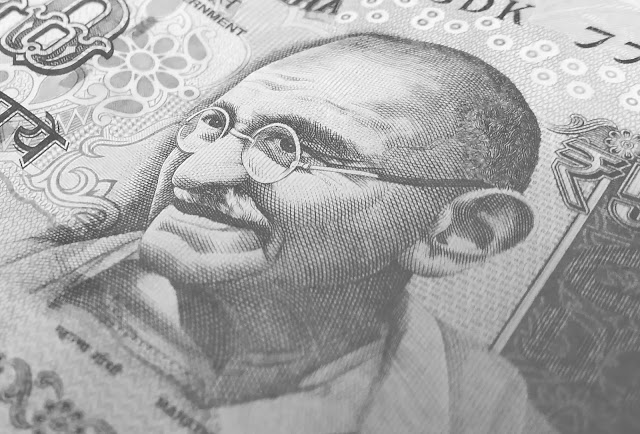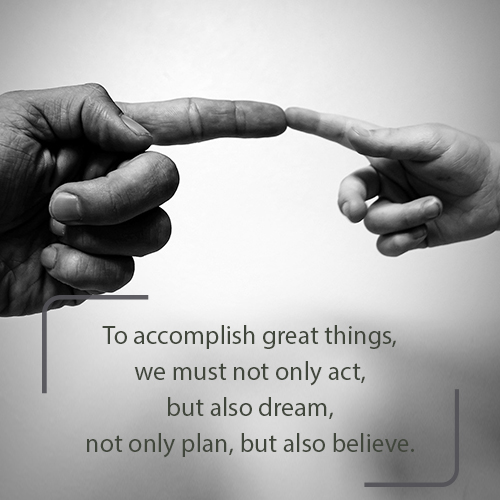Essay on Mahatma Gandhi -1
The Life and Legacy of Mahatma Gandhi
Introduction: Who Was Mahatma Gandhi?
Mahatma Gandhi was an Indian independence activist. He led the Indian people to free themselves from British rule. Gandhi was born on October 2, 1869, in Porbandar, Gujarat, India. His father's name was Karamchand Gandhi and his mother was Putlibai (Poona Devi). They belonged to the Hindu caste called Vaishya (merchant).
He had no formal schooling, but he learned English at his uncle's law firm in 1887. Then he went to England for studying law where he attended the University College of London for one year. Back in India, he became a lawyer and started practicing in Bombay. He didn't like that profession so quit it after just one year and started studying economics and other social sciences.
Mahatma's Beliefs and Inventions
Mahatma Gandhi, also known as Bapu, was a spiritual and political leader in India. His beliefs and inventions were based on his idea of nonviolent protest and the promotion of Indian independence. He is widely revered for his philosophical views and ingenious inventions.
He believed in Ahimsa (non-violence) and truth which he called Satyagraha (truth-force). He advocated for free speech for all people, regardless of race or religion. He also invented several tools such as spinning the wheel, khadi dress, Panchayat system, etc.
Gandhian Principles & Approach to Life
The term ‘Gandhian principles’ refers to the philosophy of Mahatma Gandhi. His philosophy is based on the principles of nonviolence, truth, self-sacrifice, and compassion for all living beings.
Mahatma Gandhi was born in 1869 in India to a family that belonged to the Hindu caste of traders. He spent his childhood in Gujarat state where he nurtured his interest in reading and writing poetry. He was also an avid reader of religious texts which led him to develop a strong belief system around nonviolence, civil disobedience, and other Gandhian principles.
He started his activism at age 13 when he refused to serve as a child laborer in India’s colonial textile mills. His first major act of activism occurred when he took part in 1893
Conclusion
Mahatma Gandhi, often known as the father of the nation, was a great leader who gave up his entire life to promote non-violence.
With this story, I have shown you how AI can be used in many different ways. They are not just for generating content and writing articles like we saw with Mahatma Gandhi's life story and the AI writers that we discussed in the section on AI and content writing.
—
Essay on Mahatma Gandhi -2
Mahatma Gandhi - The Man, the Legend, the Legacy
Introduction: A Brief Overview of Mahatma Gandhi's Life and His Extraordinary Legacy
The life of Mahatma Gandhi is a study in contrast. He was a man of peace, yet he preached non-violence in the form of civil disobedience to achieve independence for India. He was a mystic and an ascetic but tolerated all religions. He was an unassuming man who shunned material possessions, yet his actions had worldwide consequences.
Gandhi's legacy has not faded with time; he remains one of the most important figures in history, revered by people the world over for his commitment to non-violence and his philosophy of peaceful co-existence. His vision has never been more relevant than it is today.
Mahatma Gandhi - The Father of Nonviolence and Uncompromising Truth
With all the violent protests happening in the world, it is a good thing that we have Mahatma Gandhi to remind us of what nonviolent protest is. He started his nonviolent movement in India.
In 1907, Gandhi returned from South Africa and gave a speech about the nonviolent protest on August 30th in Kolkata on the occasion of the 50th anniversary of the Indian rebellion of 1857. This was also called India’s First War of Independence.
Gandhian Philosophy - Principles for Living a Noble Life
Gandhian philosophy is a nonviolent protest movement that was led by Mahatma Gandhi. It included principles for living a noble life and spiritual and moral practices.
The central principle of Gandhian philosophy is Ahimsa, which means nonviolent resistance to the use of physical force.
Conclusion: The Importance of Mahatma Gandhi's Philosophy and Lessons
It is not just Gandhi's philosophy and lessons that we should learn from. We should also learn from the strength and conviction he showed on his path to achieving freedom, resistance, and self-reliance.
—
Essay on Mahatma Gandhi -3
The Life and Times of Mahatma Gandhi: An Introduction to the Man Who Inspired Millions
Mahatma Gandhi Biography: The Story of a Legend
Mahatma Gandhi was a revolutionary. He fought for India’s independence from British rule. Gandhi is also known as the “father of the nation” in India.
He grew up in a well-off family and was groomed to be a lawyer. His father wanted him to pursue law but he had other plans, and became deeply influenced by the Bhagavad Gita and Jain teachings, which led him to become a non-violent activist.
Gandhi started his career as an apprentice lawyer in South Africa but quickly realized that he could make a difference in India through civil disobedience, advocating for Indian rights and challenging British imperialism.
The Four Major Turning Points of Gandhi's Life That Shaped His Beliefs & Ideas
Gandhi’s life was filled with many turning points - some that he could control and some that were uncontrollable. These turning points deeply affected his beliefs, thoughts, and ideas, which he then used to change the world.
Mahatma Gandhi Quotes - Inspiring Wisdom from the Father of Nonviolence
Here is the great Mahatma Gandhi quotes that we’ve curated for you.
- “Live as if you were to die tomorrow. Learn as if you were to live forever.”
- “I must say I am both scared and fascinated by the speed with which India is changing before our eyes. It is a bit like going overboard in a boat without a lifebelt and watching the ground come up to meet you with each passing second, expecting it to hit your head at any moment."
- “The important thing is not to stop questioning. Curiosity has its own reason for existing."
Life Lessons from the Most Important Human Being in History - Mahatma Gandhi's Teachings in his Own Words
"If you want to be happy, be."
"Happiness is when what you think, what you say, and what you do are in harmony."
"What we think we become."
There are many more quotes from Gandhi that can be found as a part of his teachings. Most of these teachings are about life lessons and how to live a happy life. It is said that he was one of the most important human beings in history because of the impact he had on society and people around the world.
Friends, You may also like this Video.







